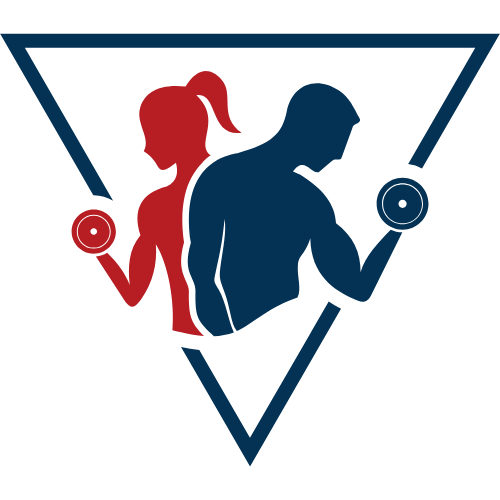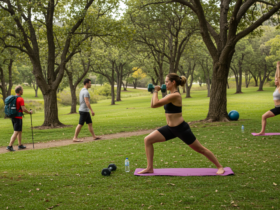Intro of AFPA fitness certification programs
If you’re looking to break into the fitness industry or take your current career to the next level, getting certified is one of the smartest moves you can make.
Whether you’re aiming to become a personal trainer, a nutrition consultant, or even a health coach, AFPA Fitness Certification Programs provide a flexible and accredited path to a successful fitness career.
I know what you’re thinking: “How do I get started?” or “Which program is the best fit for me?” This guide is here to help you answer all those questions — and more.
I’ll walk you through everything from understanding the certifications to choosing the right one for your goals, the certification process, and ultimately how these programs can help you build a fulfilling career. So, let’s dive in!
Why Should You Choose an AFPA Fitness Certification?
When you’re deciding on a certification, it’s essential to choose one that’s not only accredited but also respected by employers in the fitness industry. This is where AFPA (American Fitness Professionals & Associates) stands out. AFPA has been offering certification programs for decades, providing individuals with the tools to succeed in various fitness careers.
Reputation and Recognition
AFPA certifications are highly recognized in the fitness and wellness world. Their programs are accredited by major industry bodies and recognized by employers across the USA. Whether you’re becoming a personal trainer or a nutrition coach, having AFPA on your resume gives you credibility and boosts your chances of landing jobs.
Comprehensive and Practical Courses
AFPA’s programs aren’t just about learning theory. They are practical, hands-on, and designed to prepare you for real-world scenarios. From creating personalized fitness plans to advising clients on nutrition and holistic wellness, the knowledge you gain will be immediately applicable in your day-to-day work.
Flexibility and Accessibility
One of the best things about AFPA is that they offer online courses with self-paced study. This means you can learn at your own pace, fitting your studies around your current work or lifestyle. If you’re balancing other commitments, you can take as much time as you need to complete your course, whether it takes a few months or longer.
Now that you know why AFPA is a great choice, let’s dive into the different certification programs and how to choose the right one for your goals.
Step 1: Which AFPA Fitness Certification Should You Choose?
When it comes to choosing the right certification, you’re likely to come across a range of options — and you might feel unsure about which one aligns best with your goals. That’s completely normal! The good news is that AFPA Fitness Certification Programs offer flexibility, allowing you to pick a program that matches your passion, skills, and future career aspirations.
To help you make an informed decision, let’s explore some of the most popular AFPA certifications and the details you’ll need to understand before picking the one that suits you best.
1. Personal Trainer Certification
If you’re enthusiastic about fitness training and have a genuine desire to help others improve their health and well-being, then becoming a Certified Personal Trainer (CPT) is likely your best option.
This is one of the most popular certifications offered by AFPA and is ideal for individuals who want to work directly with clients to design and implement exercise programs that cater to their fitness goals.
Why Choose This Certification?
As a Personal Trainer, your main responsibility will be to assess your clients’ fitness levels and goals, and create personalized workout plans that can help them achieve their objectives. Whether your clients are looking to lose weight, gain strength, increase flexibility, or improve overall fitness, your role is crucial in helping them stay on track.
In addition, as a personal trainer, you’ll have the opportunity to work in a variety of settings — from gyms and fitness centers to private training sessions and virtual training. It’s a career path that offers flexibility, allowing you to work one-on-one with clients or even in group settings.
What You’ll Learn in the Program:
Here’s a deeper dive into what you’ll study in the Personal Trainer Certification Program:
Exercise Science:
-
- You’ll gain a foundational understanding of the body’s systems, including anatomy and physiology. This knowledge is crucial because as a personal trainer, you need to know how different exercises affect muscles, joints, and organs.
- You will learn how to design effective exercise programs based on the client’s fitness level, needs, and health considerations.
Program Design:
-
- One of the most vital skills you’ll develop in the program is how to design exercise routines. These routines will vary for each client, depending on their fitness goals. Whether they’re aiming to lose weight, build muscle, or improve cardiovascular endurance, you’ll need to know how to structure a workout plan that targets their goals.
- Strength training, cardio, flexibility, and core strengthening exercises will be part of your toolkit.
Injury Prevention:
-
- Personal trainers are responsible for guiding clients through workouts while ensuring they perform exercises safely. You’ll learn how to minimize injury risks by teaching proper form, recommending appropriate warm-ups and cool-downs, and recognizing signs of overtraining.
- Preventing injuries is key to building trust with your clients, ensuring they feel safe and confident as they work towards their goals.
Client Interaction:
-
- As a personal trainer, your role extends beyond just creating workout plans. You’ll also need to effectively motivate your clients to stay committed to their fitness journeys. This involves strong communication skills, offering encouragement, and understanding the mental aspects of fitness.
- Additionally, you’ll learn how to tailor your communication based on each client’s personality and motivations, ensuring they stay engaged and excited to work out.
Real-Life Applications
-
Personal Training isn’t just about pushing clients through workouts. It’s about becoming a trusted guide to their health and wellness journey. As you guide your clients through fitness challenges, you’ll be mentoring them, helping them overcome obstacles, and motivating them to achieve their goals.
-
Imagine working with a client who is trying to lose weight. You’ll assess their diet, fitness level, and lifestyle. Based on their needs, you’ll create a custom fitness program that includes cardio, strength exercises, and flexibility training. Throughout this process, you’ll track their progress, adjust the plan when necessary, and continue motivating them along the way.
Where Can You Work with This Certification?
- Fitness Gyms and Health Clubs: Most personal trainers work in fitness centers, where you’ll interact with clients and guide them during their sessions.
- Private Training: Many trainers choose to run their own business, offering personal training sessions either at clients’ homes, online, or in rented studio spaces.
- Corporate Wellness Programs: Larger companies often hire personal trainers to create wellness programs for their employees.
- Online Coaching: Virtual training is on the rise, especially with the flexibility it offers both trainers and clients. You can work with clients remotely, providing personalized workout plans through apps, video calls, and more.
2. Holistic Nutrition Certification
In today’s world, people are becoming more aware of how important nutrition is in their overall health. If you’ve always had an interest in the relationship between food and fitness, then becoming a holistic nutritionist could be your perfect path. This nutrition certification will teach you the ins and outs of holistic health, focusing on natural foods and lifestyle changes that support long-term well-being.
What You’ll Learn in the Program:
- Nutritional principles: Understanding essential macronutrients (proteins, fats, carbohydrates) and micronutrients (vitamins, minerals).
- Meal planning: Crafting personalized meal plans for clients based on their goals.
- Health coaching: How to counsel clients on lifestyle changes related to nutrition and fitness.
- Supplements and detox: Learn about supplements and natural detox methods that can enhance health.
You can also read Major Fitness Power Rack vs Squat Rack
3. Health Coach Certification
A health coach isn’t just about physical fitness; it’s about helping clients make lasting changes in their life, mentally, emotionally, and physically. If you want to help people achieve holistic wellness, this certification is for you.
What You’ll Learn in the Program:
- Behavior change psychology: Understand what motivates people to make lasting lifestyle changes.
- Goal setting and accountability: Help clients set achievable goals and hold them accountable.
- Stress management: Teach clients techniques to manage stress and maintain emotional well-being.
- Lifestyle coaching: Learn how to advise on various aspects of life, including sleep, mindfulness, and productivity.
Step 2: Understanding the Certification Process
Once you’ve selected the certification program that fits your goals, it’s time to understand how to earn your AFPA certification.
Registration and Enrollment
To begin, visit the AFPA website, choose your program, and complete the registration process. You’ll pay for your program and get immediate access to the course materials. You can start studying as soon as you’re enrolled!
Coursework and Study Materials
Each AFPA certification program comes with a comprehensive curriculum that covers everything you need to know to succeed in the field. The courses include:
- Textbooks and manuals: Detailed resources that dive deep into the topics you’re learning.
- Video lectures: Watch instructional videos from expert instructors.
- Practice exams: Get a feel for the real exam with practice questions.
Completion and Exam
Once you’ve gone through the course material, it’s time to take the exam. Don’t worry — the exams are designed to test your knowledge of the course content. With practice exams available beforehand, you’ll have plenty of time to prepare.
Once you pass the exam, you’ll receive your official AFPA certification and can proudly put your certified personal trainer or nutrition coach credentials on your resume.
Step 3: How AFPA Certification Opens Career Doors
So, you’re certified — now what? Let’s talk about how you can leverage your AFPA certification to build a successful career in the fitness industry.
1. Work as a Certified Personal Trainer
As a certified personal trainer, you’ll have the skills to work in gyms, fitness clubs, or even start your own business. Whether you’re training clients in person or offering virtual training sessions, there’s a growing demand for skilled trainers.
2. Become a Health or Nutrition Coach
With the health coach or nutrition coach certification, you can work in corporate wellness programs, start your own private practice, or even build an online coaching business. Offering advice on health, fitness, and nutrition is highly sought after in today’s wellness-driven society.
3. Group Fitness Instructor
Another popular path is to work as a group fitness instructor. With AFPA’s group fitness certification, you can teach a variety of fitness classes, such as yoga, cycling, Zumba, and more. Group fitness classes are an excellent way to reach multiple clients at once while maintaining a high earning potential.
Step 4: Continuing Education and Advanced Certification Options
The world of fitness is constantly changing. New trends, workouts, and wellness strategies are emerging all the time. To stay competitive, it’s important to continue your education.
AFPA offers continuing education courses that allow you to stay up-to-date with the latest trends. You can further specialize in areas like strength training, advanced nutrition, or even sports psychology to increase your skills and marketability.
Step 5: Success Stories: Real-Life Testimonials from AFPA Graduates
Nothing speaks louder than the stories of people who have successfully navigated the certification process. Here are just a few stories from AFPA-certified professionals:
- Samantha, a certified personal trainer, opened her own fitness studio after completing the AFPA Personal Trainer Certification. She now has a growing client base and is earning a six-figure income.
- David, a health coach, transitioned from a corporate job to helping people with chronic conditions manage their health through lifestyle changes. His success shows the versatility of the AFPA Health Coach Certification.
My Opinion| Start Your Journey with AFPA Today
There’s no better time to invest in your future than now. Whether you’re just starting your fitness career or looking to expand your expertise, an AFPA certification provides the knowledge, credibility, and tools to make it happen.
The journey from beginner to certified professional can be incredibly rewarding, and AFPA offers a variety of programs to suit your goals. By choosing the right program, completing the course, and taking advantage of ongoing education, you can build a career that is fulfilling and financially rewarding.
So, are you ready to take the first step? Your fitness career awaits!
















Leave a Reply
View Comments